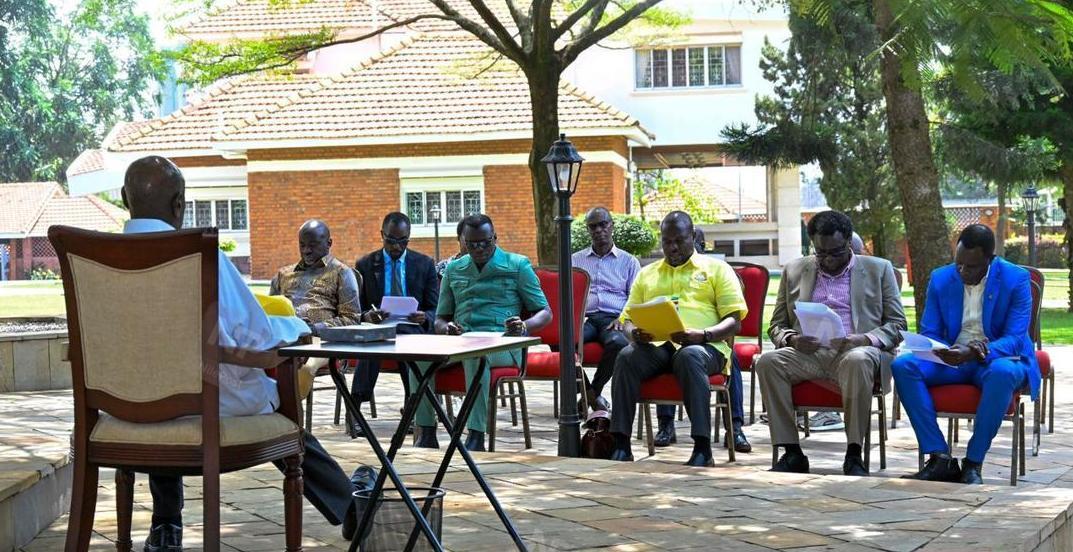Africa-Press – Uganda. The government has suspended public funding to political parties represented in Parliament, following the enactment of the Political Parties and Organisations (Amendment) Act, 2025, which restricts such funding to parties that are members of and actively participate in the Inter-Party Organisation for Dialogue (IPOD).
In a letter dated July 2, Justice and Constitutional Affairs Minister Norbert Mao informed Electoral Commission (EC) Chairperson Justice Simon Byabakama that the new law eliminates the legal basis for disbursing funds to political parties that are not part of IPOD.
“Government shall only provide funds or other public resources to a political party or organisation… if the political party or organisation is a member of the Inter-Party Organisation for Dialogue and participates in activities of the Inter-Party Organisation for Dialogue,” Mao wrote.
He further instructed the EC not to release any political party funds until further notice, pending the completion of legal and procedural consultations.
“The purpose of this letter is to emphasize the fact that with the coming into force of the new law, the EC has no legal basis for disbursing funds to political parties. In the circumstances, I request you not to disburse any funds to political parties until you hear from me,” Mao stated.
The minister said President Museveni, who chairs the IPOD Summit, is expected to convene a meeting of stakeholders to chart a way forward.
Mao also pledged to issue statutory instruments required by the amended law within three weeks.
The development has triggered fresh debate over the relevance and integrity of IPOD in Uganda’s multiparty political system.
Appearing on NBS Television’s Morning Breeze on Wednesday, political analyst Imam Idi Kasozi dismissed IPOD as a money-driven platform.
“IPOD is largely about money. That’s where the debate is,” he said. “Those who don’t attend IPOD meetings are pretenders. All they do is pretense, but when it comes to resources, they rush for them.”
Kasozi argued that Uganda’s political players have failed to grasp the platform’s intended purpose. “We have never taken critical time to understand what exactly IPOD is supposed to do in this country,” he added.
In response, IPOD Executive Director Lawrence Sserwambala defended the organisation’s legitimacy, stressing that it is governed by its summit of member parties—not by President Museveni.
“The President doesn’t call the shots of IPOD, the summit does,” Sserwambala said. He explained that while the leadership is currently held by the ruling NRM, the position rotates among member parties.
Sserwambala also confirmed that the National Unity Platform (NUP) is not yet part of IPOD because it has not signed the required Memorandum of Understanding (MoU).
“NUP, as we speak, is not a member of IPOD. After the Minister issues a statutory instrument, then NUP will have to come into the IPOD fold as per the law,” he noted.
Responding to criticism over opposition absences at IPOD meetings, Sserwambala pointed out that even long-standing parties like the Forum for Democratic Change (FDC) have at times failed to attend.
“NUP wasn’t the only party that wasn’t represented at the meeting with the NRM Chairman. FDC also didn’t show up,” he said.
“This isn’t a big deal given that NUP hasn’t signed the MoU.”
He clarified that until recently, party funding had not been tied to IPOD participation.
“The money NUP has been receiving from the government until the 5th of June has not been pegged to membership of IPOD,” he explained.
Despite the disputes, Sserwambala maintained that IPOD remains a voluntary institution. “I am not going to coerce a party to join,” he said. “Parties aren’t equivalent to NRM or NUP. There are many political parties in Uganda. The institution of IPOD will remain, with or without members.”
For More News And Analysis About Uganda Follow Africa-Press






